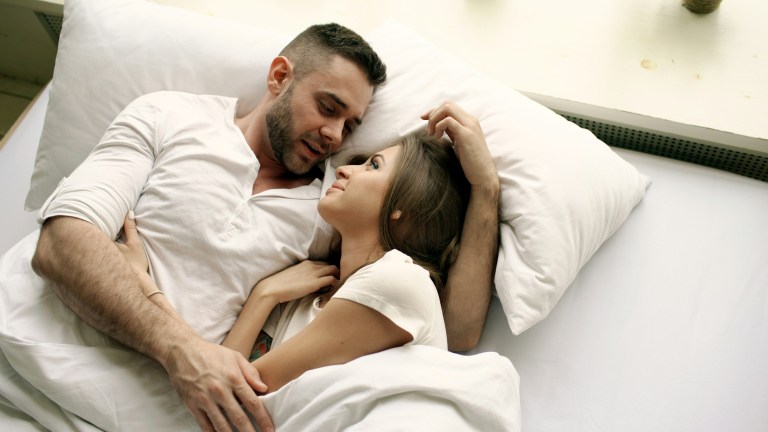
This Is Why You Can’t Help Falling For Emotionally Unavailable People
Avoidants are recycled back into the dating pool more often, but they don’t date each other because they both want space.
By ![]() Kyle Benson
Kyle Benson

My most common client is in a relationship with an emotionally unavailable partner. They don’t know what to do and they don’t understand why their partner treats them the way they do.
Their partner says they are committed to the relationship, but their behavior tells a different story. We wonder if we are a priority in their life. Every time we commit and get closer, it feels like they put us down or tell us we are needy. It’s confusing and hurtful.
If you feel like this in your relationship, you’re most likely dating an emotionally unavailable partner whose life experiences have taught them to avoid intimacy. Closeness and being connected to another person caused more pain and neglect than the fleeting moments of love they received.
The science of love labels suggests this person is an avoidant. But in their minds, they are a non-needy, independent individual. If you find yourself in a relationship with this person, you’re most likely a person who desires closeness and is willing to make compromises in your relationship to make it work.
This is not healthy. It will only lead you to a relationship that feels very one-sided. You investing in the relationship but they are not.
Any person who desires closeness is going to run into three major obstacles to finding a soulmate.
1. Emotionally Unavailable People Dominate Modern Dating
Our modern world of dating is full of emotionally unavailable partners. The sort of people who are fiercely independent and don’t like closeness often end their relationships first.
A recent study on attachment showed that avoidants who entered a new marriage, post-divorce, were more likely to divorce again. Since this type of person suppresses the emotions of love, they get over partners almost instantly.
Therefore, avoidants are in the dating pool more often, and for longer periods of time.
Secure partners don’t go through countless partners before they happily settle down. Once things “click,” they commit to a long-term relationship. This is why secure partners are the hardest to find. They take a long time to rejoin the dating pool, if they do at all.
Studies also show that avoidants struggle to date other avoidants because they lack the emotional glue to stay together. Ironically, one study didn’t even find a single pair that was avoidant-avoidant. This is why avoidants are more likely to date people with different attachment styles. Someone’s got to make the effort.
Putting the jigsaw puzzle together, you can see that the probability that meeting an avoidant in the dating market is high. Much higher than their actual size in the population: 25 percent.
Avoidants are recycled back into the dating pool more often, but they don’t date each other because they both want space. Nor do they date secure people, because secure people are less available. So who are they attracting? That’s right: potential partners with an anxious attachment type. Partners who crave extreme closeness.
Understanding your attachment type is your key to finding a lasting and fulfilling relationship. You’re only as troubled as the relationship you’re in. If you keep finding yourself dating unavailable partners, the common denominator in all of your relationships is you.
2. You Find An Emotionally Unavailable Partner Attractive
The science of attachment attraction says if you are anxious, you also believe that your partner doesn’t want as much closeness as you want.
We are often unaware that the partners we are obsessed with are the ones that reinforce our deepest insecurities. Studies on the science of adult attachment show that our beliefs about love attract specific partners.
People who fiercely guard their independence are attracted to partners who invade it. People who desire extreme closeness are attracted to people who are scared of intimacy. Sounds healthy right?
It’s not.
Meet Steven. Steven had a toxic relationship with an aspiring actress named Leah. Leah’s subtle indicators of unavailability made Steven feel insecure. This is typical when someone who desires closeness dates someone who craves independence.
Very early in the relationship, the “independent” partner starts sending mixed signals. Leah called, but she took her time doing it. Leah was interested in Steven, but she needed to make sure he knew she was still playing the field.
This behavior leaves us guessing. Every time you get a mixed message, the “needy” partner becomes preoccupied with the relationship. Friendships, hobbies, and career opportunities don’t matter.
Our primal instincts to stay close to our partners drive us to seek closeness from them. If our life experiences have confused the anxiety and neglect of a relationship with those who hate closeness for love, then any secure person we meet will be ignored. This leaves us to only attract those who reinforce our deepest insecurities.
Being constantly uncertain, needy, and insecure about our relationships is not what nature intended. Famous scientists James Bowlby and Mary Ainsworth discovered that in order to thrive and grow as human beings, we need a reliable partner to derive our strength and security from.
3. You Find Healthy Lovers to be Missing the Spark
Let’s say you’re one of the lucky ones and you meet someone secure. Do you realize you’ve just won the dating lotto, or are you just “not feeling it?”
Four years ago, Susan was set up by her friend Diana with this guy named Brandon. Brandon, a med student at the time, wanted to meet someone after his girlfriend of three years left him. He was pretty sad about the breakup, but after a few months was ready to start dating again.
Susan described Brandon as physically beautiful. He had a sense of humor. He was athletic, and came from a stable, well-educated family.
He was a catch, right? Not quite.
Susan wasn’t interested. The spark was missing. Diana was dumbfounded; she couldn’t comprehend why Susan was turning him down. In hindsight, though, it makes sense.
When you met a secure lover, the messages you receive are honest, straightforward, and consistent. Due to the belief that they are worthy of love, secure lovers are not afraid of intimacy.
They don’t beat around the bush or play hard to get. Ambiguous messages and other behaviors that cause uncertainty, tension, and suspense in the relationship don’t exist.
Due to this, you feel rather calm around them. You believe they can’t be “the one,” because no emotional alarms are going off. Your life experiences have taught you that a calm attachment system is boring.
This fallacy causes you to pass perfect soulmates by. Susan went through toxic relationship after toxic relationship because she assumed the anxiety and uncertainty of an activated attachment system was a signal of chemistry. The man she married, Steve, who was full of confidence, never missed a chance to put her down.
Brandon on the other hand, met someone a few months later and they’ve been together ever since. They now live in California and have one adorable little girl named Corina. He is an amazing father and husband.
Susan had a rough ride. After several years of feeling neglected and disrespected, she finally built up the self-respect to leave Steve. After working on her beliefs with a coach, she started to appreciate the stability and security of a loving relationship with a secure man.
After her divorce, she met Blake, who is as loving and as caring as Brandon. She’s never had a calmer or a more secure relationship than the one she has with Brandon.
Learning about your attachment type and the people you find attractive is crucial to your relationship happiness.
The highs and lows of constant uncertainty in a relationship should not be mistaken for passion or love. They may feel like that, but they’re not. Don’t let emotionally unavailable people turn you on. ![]()











